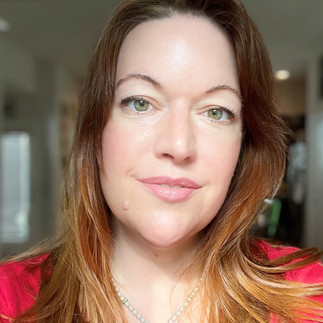Nine Tips to Help You Achieve Better Sleep
- Elizabeth Seabolt-Esparza, LPC

- Jan 9, 2023
- 4 min read

Sleep. We all need it. We all struggle to achieve it. Sleep is incredibly important, both for physical and mental health. Yet, many people report struggling with insomnia. The complaints I hear the most from my clients are trouble falling asleep, staying asleep, or both. I myself am a light sleeper who has a very difficult time falling asleep. I also have the misfortune of being one of those people who cannot function, even after just one night of little to no sleep. It probably goes without saying that I take sleep very seriously.
Many people are not aware of something commonly referred to as “sleep hygiene.” When I ask my clients about their sleep hygiene, their answers are usually not surprising. Many clients tell me they fall asleep while watching TV, drink coffee, or eat heavy meals shortly before bedtime. These are all examples of things that can disrupt your sleep. The term sleep hygiene refers to a set of activities you do to prepare for sleep as well as changes you make to your routine and/or environment prior to bedtime. Below I will share some tips for healthy sleep hygiene.
1) Make sure your room is dark, or that you are able to block light from your eyes, even if they are closed. Many of us live in big cities, with lights on at all times. Whether it be blue light emanating from a computer or streetlights outside the bedroom window, these lights interfere with our ability to fall asleep and stay asleep. Darkness signals the pineal gland to produce melatonin, a hormone that encourages sleep. Blackout curtains are helpful for this. If blackout curtains aren’t an option, there are a variety of sleep masks out there that can help block the light to give you a better chance at having a full night’s rest.
2) Along with darkness, the type of light around you matters. Blue light in particular can interfere with your sleep. While a sleep mask can help with this while you are in bed with the lights out, avoiding scrolling on social media, or watching TV or using a computer prior to bed time can help with sleep. If you like to read on electronic devices like a Kindle before bed, try to use the blue light blocking setting to give yourself a better chance of falling asleep and having a restful night.
3) Temperature matters. It is important to find the temperature that is right for you. Usually, a cooler environment encourages better sleep.
4) Consider different items to assist with sleep. I look for things that provide softness and comfort. Weighted blankets that also assist with cooling your body temperature can help. White noise apps or apps with ocean sounds and rainstorm sounds can help with sleep depending on what you find soothing.
5) What you put into your body and when matters. Drinking alcohol, eating sweets, consuming caffeine, and eating too close to bedtime can disrupt your sleep. Try to eat at least three hours before lying down to go to bed. This gives your body a chance to fully digest dinner so you have a better chance of avoiding indigestion at bedtime. Caffeine-free teas like chamomile and lavender are known to help with sleep. Warm milk (regular or almond milk) has also been known to help with sleep.
6) While we are on the subject of what you put into your body before bedtime, there are supplements you can take. Different herbs like valerian, skullcap, and chamomile are often used for sleep. Melatonin, which I mentioned above, can also be found in a liquid or pill form as an over-the-counter supplement. It may take some trial and error to find out what works for you. There are prescription medications available for sleep but it is a good idea to take caution with these as some may be addictive or have harmful side effects. Always consult with a healthcare professional before trying anything new.
7) Do you like scary movies? Maybe avoid these before bedtime. Many people report restless sleep accompanied by nightmares when they watch scary movies too close to bedtime.
8) Creating a peaceful environment and routine before bedtime can also help. A nice warm bath, not too hot, with lavender oil and candles can induce a soporific feeling. Making sure the bedroom is quiet and free from stressful noise is helpful. Some people enjoy meditation. There are also apps that will tell you a bedtime story or take you through a guided meditation designed to help you relax and go to sleep more easily. I happen to love candlelight yoga, which is very relaxing and good for the mind/body connection.
9) Trying to make yourself fall asleep may have the opposite effect. This may seem counterintuitive but sometimes lying there with your eyes tightly closed can make it more difficult to fall asleep. Getting up and doing something like reading or snuggling with a pet may help you get back to sleep more quickly. If getting up feels too activating for you, mindfully noticing how good your bed feels may also help you eventually fall back to sleep. This last suggestion is why it is important to create a soft comforting environment in your bedroom.
If you have concerns that you may have an underlying medical condition causing your sleep disruptions, please make an appointment to see your doctor. Some conditions like sleep apnea can cause sleep issues. And always make sure to consult with a healthcare professional before taking any supplement, even natural supplements. Otherwise, try one or more of the above and see what helps you the most. It’s never too late to begin developing the sleep hygiene routine that is right for you.




